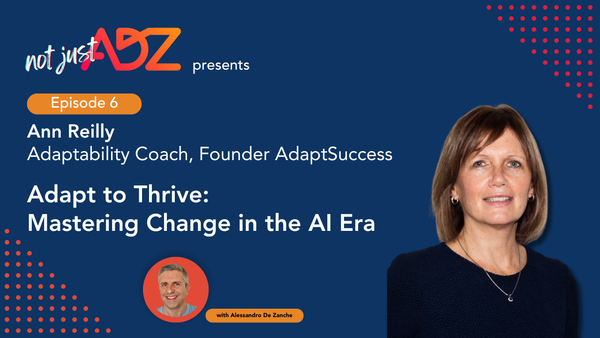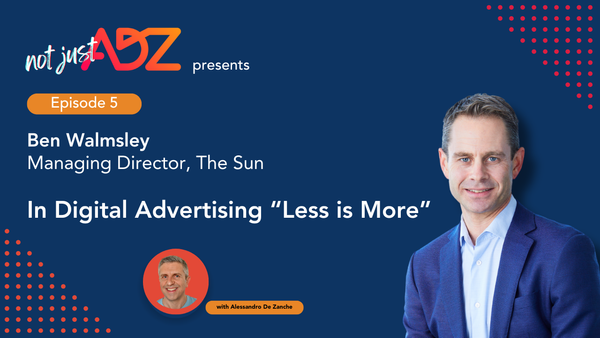For Media Companies, 2020 Will Be Determined By The Choices They Make Now | AdExchanger
The tide is turning in an ecosystem that should work harmonically but has for years favored one side at the expense of the other. Digital…

The tide is turning in an ecosystem that should work harmonically but has for years favored one side at the expense of the other. Digital advertising is on the right path to regain value and fairness and benefit those that provide the financial resources — advertisers — and those that provide a quality environment — media owners.
But nothing will fall from the sky into the hands of media owners in 2020. They will have to fight along a still long and winding road and are dependent on strategic choices (or the lack thereof) that could have a butterfly effect on the sustainable future of media.
There are two main forces that will pull media owners in opposite directions.
On one side are those, especially in ad tech, that have lost — or are losing — control of digital advertising’s momentum and revenues through RTB because of privacy regulations, fraud and changes in perception. They will try to compensate by mutating and continuing to extract value from media owners, even using them like Trojan horses in the whack-a-mole game against browsers.
In this group we should also include all those media executives lacking the vision, confidence or effort to fight a status quo that has done so much damage to their category. If these parties succeed, media will remain commoditized. The farming of assets will extend from providing ads to the open marketplace, to allowing aggregators and platforms monetize media owners’ relationships with their audiences, assets and data.
I am not suggesting that ad tech should not operate in its own interest or occupy a vacuum where one arises, but the scenario I’ve just described would prolong media owners’ managed decline and dangerously imperil the ecosystem’s long-term future and the sustainability of quality media. I place more blame on media owners for not seeing or wanting to see the bigger picture than I do on ad tech for taking advantage of it.
On the other side are media owners that understand their potential in the new world order. They see an opportunity rather than a threat. In fact, many key industry areas of focus for 2020 are totally in control of media owners, including consent, identity, contextual targeting and first-party data.
In 2020 the sun will shine high or the fog will hang thick over media owners, depending on the choices they make in the next few months.
There are a few key actions that in my opinion could make 2020 a great year for media owners.
Change the narrative
Media owners will be crushed if they keep thinking that their competitors are Google or Facebook, Apple or Amazon. They should be playing on their main characteristics: the quality of their content, the engagement with their audience, the power of their context and their data. They should position themselves as complementary to Google, Facebook and the rest, which are more focused on direct response instead.
Very few advertisers and agencies will believe that media owners are better at direct response than these big tech platforms, but many will agree with the concept that quality media is a complementary alternative to it, and that it should be considered a fundamental tool in their branding strategies.
This does not imply that direct response, ecommerce and other conversion-focused media environments should not play their role across quality media, but it’s not the key unique selling proposition that will bring them boldly back to the forefront of advertisers’ budgets.
Dig deeper foundations
Media owners should avoid getting distracted by hot topics and catchy buzzwords. They should look with razor sharp discipline at the areas that will truly put them back in control: relationships with users, consent strategies and use of contextual and first-party data.
Long-term success requires going back to the basics and building or rebuilding their foundation from scratch. There is no point in wasting time on identity if you don’t even have your own first-party data strategy implemented, and there is no benefit in having a data strategy if you don’t have an engagement plan to get consent from your audience. There is no use in talking about AI when you don’t even know with enough confidence if your user is male or female.
User = customer
As the value of data is now directly linked to the provision of consent from the user, it’s evident that a big part of the advertising industry’s revenue depends on it.
The role of marketing in media organizations will exponentially become more important, with the change of approach from value extraction from an audience of “users” (sadly a practice of the past that is still currently used in many cases) into value exchange with an audience of “customers.” Rather than dismissing the opportunity because of the cost of hiring new people, media owners should focus on optimizing and extending the role of their existing marketing teams horizontally, across the whole company.
Bring creativity back
Regaining control of a quality media environment with a powerful narrative would also require, as has been advocated in the past, a consistent set of layers defining the standards of that ecosystem.
It would not only become an opportunity but also the fulfillment of a need: more creative ad formats supporting advertisers in their brand strategies and planning. With enough media owners collaborating it would become a fertile ground for testing and experimenting technologies such as AR and VR. They have been barely touched so far, especially because of the programmatic need for “infinite reach,” which often flattens creativity to the minimum common denominator.
Yes, they would be expensive formats. They would require more complex creative concepts. They would mean longer implementation times. They won’t be for just anybody. It’s the difference between quality and mediocrity, and that’s also the reason why a Rolex costs more than a Mickey Mouse watch.
The biggest wish that I have for media owners in 2020 is that they are able to internalize the fact that they cannot please everybody and be everything to everyone. They must own their assets and wield them to achieve their overarching goals and vision. They need to take a stand and boldly define what they are and what they aren’t.
Originally published at https://www.adexchanger.com on December 31, 2019.





